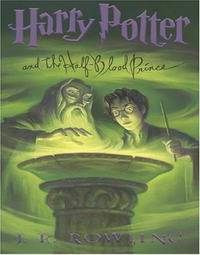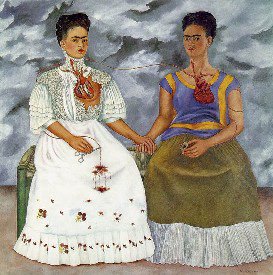 I was fighting long and hard and eventually the alter-ego part of me that wanted a final proof of Keira Knightley's abyssmal acting abilities (you know the story: just another talentless but beautiful young actress) got the better of me. However, I was up for very enjoyable two hours. Please join me in scrutinizing all the aspects of the film.
I was fighting long and hard and eventually the alter-ego part of me that wanted a final proof of Keira Knightley's abyssmal acting abilities (you know the story: just another talentless but beautiful young actress) got the better of me. However, I was up for very enjoyable two hours. Please join me in scrutinizing all the aspects of the film.
The first thing one notices in the film is that the film-makers have taken much liberty with the material at hand. It's an adaptation rather than a film version of the book. In the book the Bennets do have a farm, but it is not physically connected to their house. The film makes the village a completely rural place that is considerably less sophisticated than the town, which is a gross over-simplification. Whether the script-writer and director thought that the modern cinema-goer is unable to understand the distinction between the lower and higher class (as it was in Austen's day) is anyone's guess. One of the most powerful messages Austen conveys with her writing is that rank counts for nothing when it is not refined by extensive improvement of the mind. This is underlined by the fact that e.g. Lady De Bourgh is very self-centered and simple-minded despite her elevated rank, extensive property and superb connections.
 Also Lizzy and Jane's manners with their incessant giggling do point out the fact that they're very vivacious and young, but they almost fail in establishing the difference between them and the rest of their family. Their manners hardly ever appear sufficiently dignified (even less so with Lizzy's wandering about Darcy's home and her listening at the door) and at times their laughter isn't only unguarded but downright rude. Whether this is a sign of the producers' lacking understanding of the manners of the day or their desperate attempt to make the film likeable among the modern audiences is beyond me. (Additionally: the books are still widely enjoyed and immensly popular just as they are, with their old-fashioned manners and extreme politeness, so why would one establish that the material needs to be modernized?)
Also Lizzy and Jane's manners with their incessant giggling do point out the fact that they're very vivacious and young, but they almost fail in establishing the difference between them and the rest of their family. Their manners hardly ever appear sufficiently dignified (even less so with Lizzy's wandering about Darcy's home and her listening at the door) and at times their laughter isn't only unguarded but downright rude. Whether this is a sign of the producers' lacking understanding of the manners of the day or their desperate attempt to make the film likeable among the modern audiences is beyond me. (Additionally: the books are still widely enjoyed and immensly popular just as they are, with their old-fashioned manners and extreme politeness, so why would one establish that the material needs to be modernized?)
 Some cuts, naturally, were expected when you're making a 300 page novel into a two-hour film and they somewhat improved the film, for example having Bingley have only one sister worked very well, but the downside is that for a newbie, the plot and all its twists and turns are hard to follow and at moments the actions of certain characters seemed feebly motivated, just because the film-makers could not afford the time to offer extensive explanations. The pace of the story is incredible - and it's not always a good thing to do this in a romance. Surely, an action film benefits from pacing, because it builds suspense, but here some of the scenes were rushed and failed to create a sufficient impact. Jane Austen's writing is universally liked and admired because of the characters she portrays and the wit with which their personalities are described; a six-hour mini series has a definite advantage over the film, simply because it has more time to establish the characters.
Some cuts, naturally, were expected when you're making a 300 page novel into a two-hour film and they somewhat improved the film, for example having Bingley have only one sister worked very well, but the downside is that for a newbie, the plot and all its twists and turns are hard to follow and at moments the actions of certain characters seemed feebly motivated, just because the film-makers could not afford the time to offer extensive explanations. The pace of the story is incredible - and it's not always a good thing to do this in a romance. Surely, an action film benefits from pacing, because it builds suspense, but here some of the scenes were rushed and failed to create a sufficient impact. Jane Austen's writing is universally liked and admired because of the characters she portrays and the wit with which their personalities are described; a six-hour mini series has a definite advantage over the film, simply because it has more time to establish the characters.
But by cutting the plot they left out many interesting characters, violently adapted the scenes and degraded the language to suit the understanding of the regular "pop-corn-fun" movie-goer.
 While Mr. Collins was decently portrayed, I felt he was not absurd, over-bearing and pompous enough to be thoroughly disliked. Generally, the acting was good, but I didn't have high expectations, so it easier to be satisfied. I can claim that Knightley (Elizabeth) is a far better actress than I estimated her to be, although I don't think the Oscar nomination was completely in place - this, afterall is an award for outstanding achievement in the field - not for doing your job properly for a change. Macfadyen (Darcy) improves on you once you see him in action, although the change in his feelings (with regard to Elizabeth) is not as pronounced as it should be. But there are evident early symptoms of his affection for Lizzy, which I liked, because it gives enough of a hint to the audience to keep its interest. I especially liked Donald Sutherland as the father, Brenda Blethyn as the mother and Simon Woods as Bingley, who in my opinion is the first to really capture Bingley's amiable, warm, but easily persuaded nature.
While Mr. Collins was decently portrayed, I felt he was not absurd, over-bearing and pompous enough to be thoroughly disliked. Generally, the acting was good, but I didn't have high expectations, so it easier to be satisfied. I can claim that Knightley (Elizabeth) is a far better actress than I estimated her to be, although I don't think the Oscar nomination was completely in place - this, afterall is an award for outstanding achievement in the field - not for doing your job properly for a change. Macfadyen (Darcy) improves on you once you see him in action, although the change in his feelings (with regard to Elizabeth) is not as pronounced as it should be. But there are evident early symptoms of his affection for Lizzy, which I liked, because it gives enough of a hint to the audience to keep its interest. I especially liked Donald Sutherland as the father, Brenda Blethyn as the mother and Simon Woods as Bingley, who in my opinion is the first to really capture Bingley's amiable, warm, but easily persuaded nature.
The film boasts a wonderful and absolutely enchanting musical background and inventive, fresh camerawork (lots of smooth, circular movements). I also liked that the film ended without the kiss (or wedding) between the two main characters, because it resisted the convention while keeping the scene effective. (Don't you just hate that only once the characters kiss at the end of a romance you really "know" they're going to be happy together?)
The film suffers from lacking the Austen spirit, because it fails to capture the attitudes and manners of the time; BBC mini-series did a much better job of bringing forward the actual spirit of the era. I should also bring attention to the fact that the two renditions of the novel are very different and that by no means is the film only a short version of the 1995 mini-series (Jennifer Ehle, Colin Firth). Also there are far too many coincidences, Knightley is startled too many times just a moment before something important happens. I wish they found some different solutions to writing those scenes. Some of these moments are effective (Darcy's first proposal), but the quantity of these moments makes you feel "deja-vu" all the time.
If you don't feel like spending the time it takes to read the book or watch the BBC mini-series (6 hours), then you could as well watch this film, which is throughly enjoyable, but keep in mind that it is not a religious rendition of the original Austen's plot.
Labels: films









